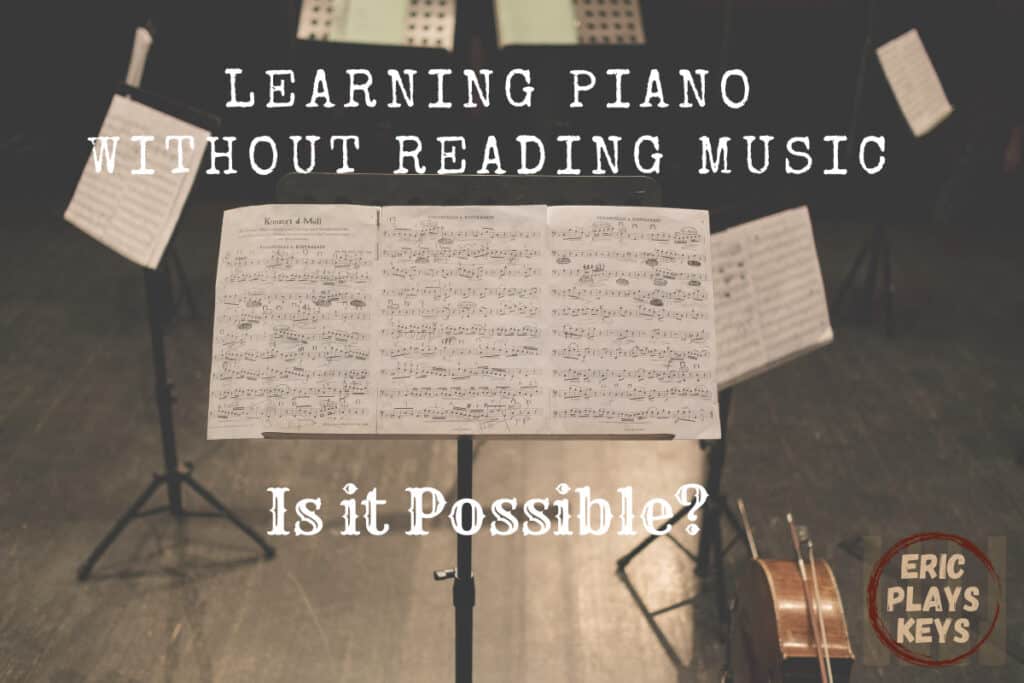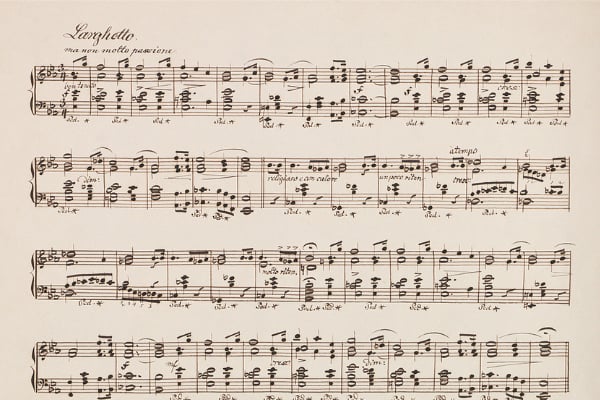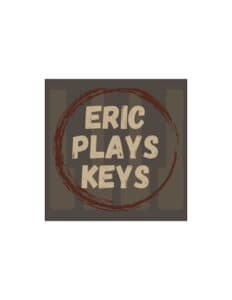
Many potential piano players are really excited to improve their skills, but still dread having to learn to read sheet music. One glance at a complicated page can cause feelings of discouragement. This begs the question – Is it necessary to learn to read this in order to play piano?
Reading music is NOT a requirement for playing piano, although it’s an important skill. The ability to read is required in some genres and situations, but there are ways to learn piano and perform without ever reading sheet music.
In this article, I’ll expand on how you can learn piano without reading, which situations necessitate reading and which don’t, and my recommendations for your decision to learn to read or not.
Reading Music is Not Required in (Almost) All Situations
For those of you who are hoping to play currently popular genres of music like rock, R&B, pop, country – reading sheet music is not a requirement at all. In fact, many musicians in these genres have limited ability to read music.
However, if you want to play classical music, reading sheet music is an absolute must. This is because every classical piece is written out completely, and is almost always too complicated to learn by ear.
The real difference here is the complexity of the music – popular and casual genres don’t need to specify each and every note in the song. The way the music is constructed allows for musicians to get creative, as long as they play within the overall form of the song. Classical music requires every note to be played exactly as the composer intended, so every note must be captured on paper and read by the student.
In the popular genres of music, it’s very common to learn the songs by ear, memorize them, and then perform them without every laying eyes on a piece of sheet music. You can follow this method, and develop into a very skilled musician. I actually recommend learning most music by ear because it helps you internalize the material.
Since I stopped playing classical music years ago, there have only been a select few instances where I had to read sheet music. Every once in a while, I band I was playing in had written out sheet music. I can count the number of times this has happened on one hand.
Reading Charts vs. Musical Notation
This is a very important distinction – up until now, I’ve been referring to musical notation, with written out notes. It’s uncommon to have to read this type of sheet music. However, there are other types of music you may have to read that you’ll see a lot more often – charts.
A chart just lays out the overall form and chord changes for a song. There’s no actual notes to be played, although the chords indirectly specify what notes are correct and what notes aren’t. When playing in a group, it’s very common that you’ll be asked to read this type of music.


How Important Is Reading Music For Piano?
Reading music is a beneficial skill for learning to play piano, although it’s not a requirement. The ability to read enables musicians to play classical music, as well as learn other songs and pieces that are written out in musical notation.
I think it’s worth mentioning that in the popular and current genres of music, it’s still desirable to be able to read music. It’s another tool in your arsenal to be able to learn new songs – you may find sheet music of a song you want to learn. If you can’t read music, you’ll have to learn it by ear. I personally recommend learning music by ear anyways, but it can’t hurt to supplement your skillset with reading.
There are many musicians that believe reading music is very important, and may disagree with my recommendations in this article. That’s ok, because everyone has their own subjective opinions. If you take lessons, it’s very likely that your teacher will require or strongly recommend you learn to read sheet music. If you’re curious about what you can expect to learn in your lessons, check out my article covering this topic.
Overall, being able to read music has been a moderate to substantial benefit to my playing. Although I prefer to learn by ear, when time is limited it’s easier to just read the sheet music and be able to play the material right then and there. In addition, reading has allowed me to play in some bands that I wouldn’t have been able to join otherwise. Finally, I believe my reading has bolstered my musical capabilities in general by adding another tool into my arsenal.
How to Learn Piano Without Reading Music
There are other musical skills that are more important than reading music, in my opinion. I believe the focus should really be on your listening skills, because that’s how we interact with music! This means listening to the material you want to learn, internalizing the notes and sounds you hear, and emulating them on the instrument.
This can be a difficult exercise, but it will improve your musicianship in a more profound way. Reading music can become a mechanical exercise, in which you press the keys on the piano that the sheet music tells you too, making noise in the form of notes. When you play by ear, it’s easier to connect to what you’re playing, and communicate through the music.
Learning by ear and emulating music on your own are essential parts of any musicians skillset. I go much more into detail on how this works in my article on teaching yourself to play, and my article on how to best improve your piano skills – I highly recommend checking these out.
How to Learn to Read Music
You can learn to read music by working with a piano teacher, using books, or using online resources. Like reading any language, learning to read music takes consistent practice and repetition.
If you want to learn classical music, or if you are hoping to develop your sheet music reading skills, more power to you! I’d highly recommend going to a piano teacher for this endeavor. I recommend teaching yourself most skills, but I’ve found that reading music in particular is hard to learn on your own. If you’re not sure whether you want piano lessons, check out my article on whether lessons are worth it.
Unlike other musical skills, you can read sheet music ‘right’ or ‘wrong’ – it’s not subjective. You’ve either played the correct notes, or you haven’t. This is why I think it’s better to have a teacher here – you can’t get bad advice from them because it’s very clear what the goal is. They can also correct your mistakes in real time, preventing the formation of bad habits and frustration.
Do All Pianists Read Music?
Not all pianists read music. Classical musicians must have the ability to read, but piano players in other genres have varying levels of reading capabilities. Reading skills are more common for advanced pianists than less experienced players.
Most of the pianists I come across, in the world of popular music, know how to read music. However, they almost never actually read because it’s not required to play their material. There are a select few that don’t really know how to read as well, and certainly get by. It’s more common for musicians on other instruments (especially drummers) to not know how to read music.
